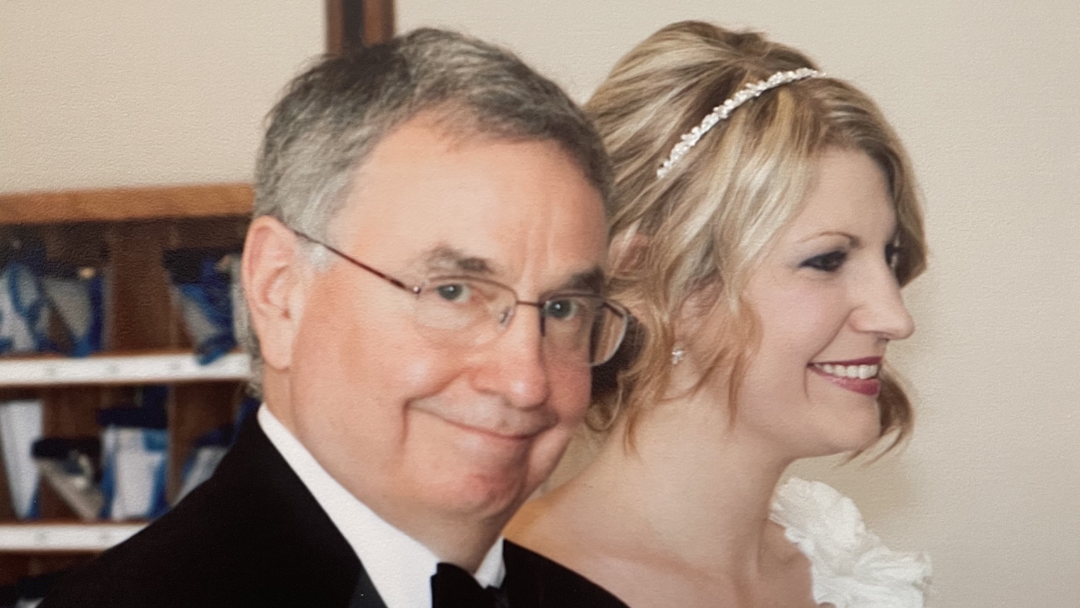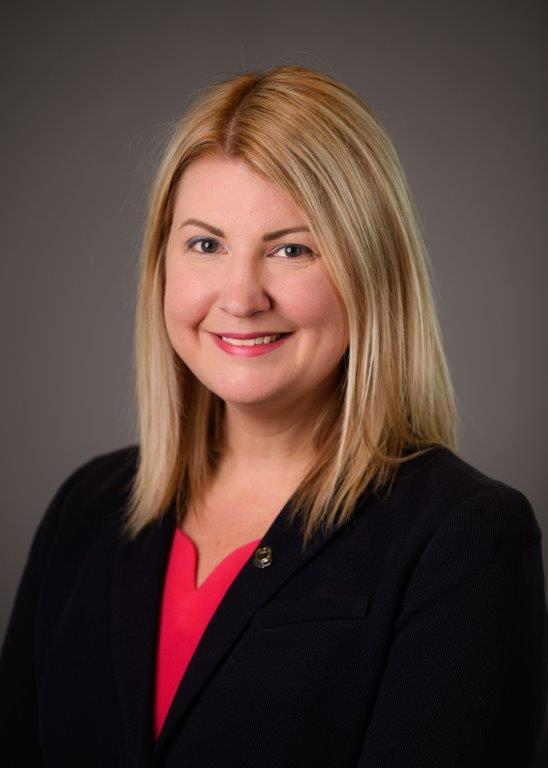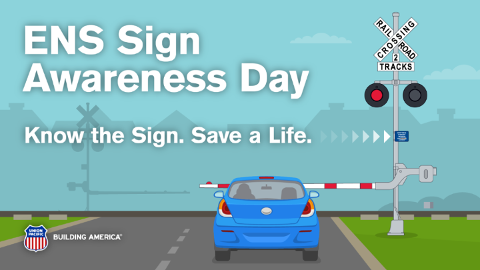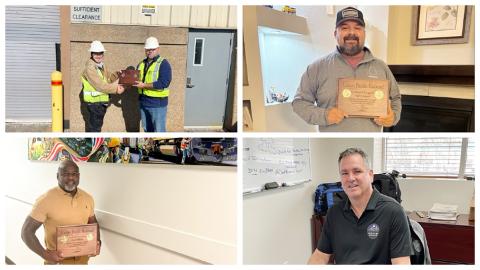On March 5, 2021, my dad walked out into our family home’s back yard and died by suicide.
My dad, Joe Stothert, was one of the most brilliant people I know. He was smart, funny, successful, financially stable and had a loving family. He had an exceptional career as a trauma surgeon, essentially building the entire trauma program in Omaha. He was 72 years old and still was working full time at the job and hospital he loved.
The day I lost my dad started off as a normal Friday. I fed my kids breakfast, I took them to school, and was working from my home office on a virtual call. When my mom called in the middle of the day, I assumed she wanted to meet for lunch or invite me to something over the weekend. That phone call was the beginning of the worst 24 hours of my life. I could not feasibly understand what I was being told. Never in my wildest dreams did I ever imagine I would be hearing those words. It didn’t seem real.
However, once the initial shock wore off, I now know there were signs everywhere. He lost about 30 pounds. He was quieter than usual. He was not sleeping. He was deeply impacted by the pandemic, and as a surgeon who experienced some of the worst disasters one could imagine, that was extremely out of character. He was drinking. He was concerned about retiring from the job/career he loved. He seemed sad. None of those things individually was anything that either me or my family thought needed to be addressed, but looking back we now know he needed help, but never asked.
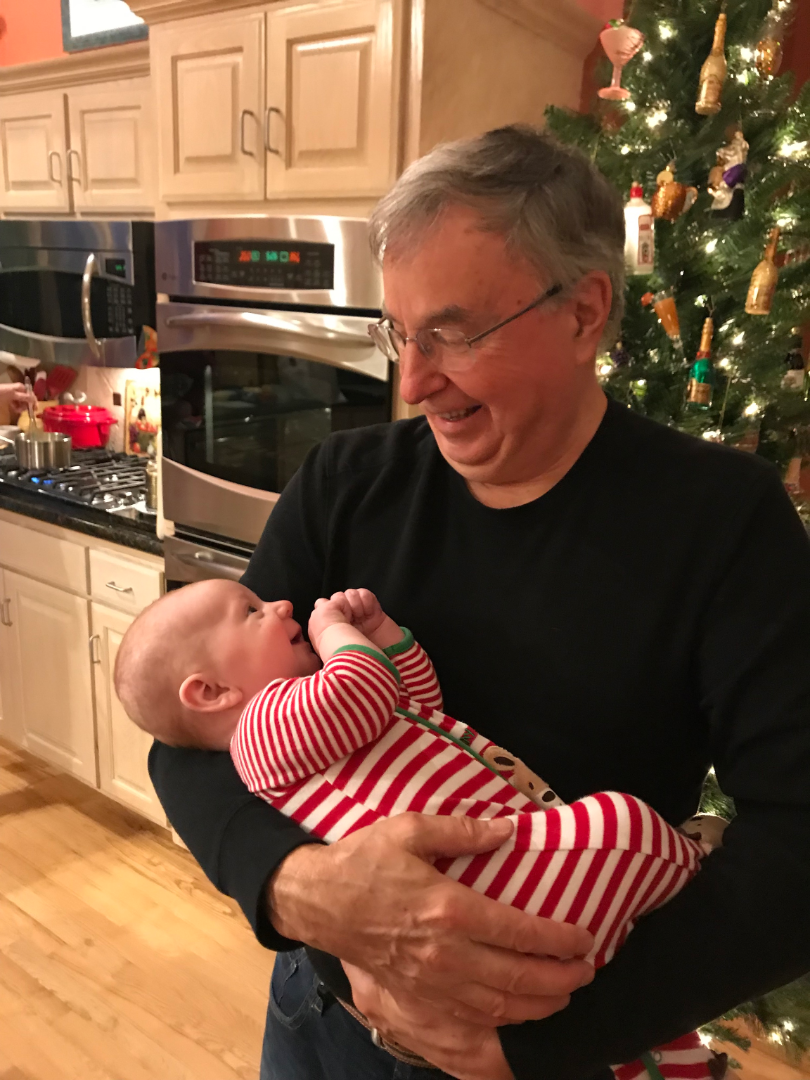
Dr. Joseph Stothert on Christmas Eve 2017 with his first grandchild, Raymond Leddy.
As an esteemed member of the community, my family received an enormous amount of community outreach. The thing I found the most impactful was learning how many people I knew, or work with, had been impacted by suicide as well. The thing that has always stuck with me is the unbelievable compassion and support I received from Union Pacific. I have been a Union Pacific employee for over 12 years. My family runs strong at UP -- my husband, Tom, is also in the Real Estate group, and my two sons, Ray and Max, are future railroaders. The grieving process was long and hard, and UP was there for me the entire way.
Since going through this ordeal firsthand two and a half years ago, it is shocking there is still a stigma surrounding talking about mental health. My dad was in desperate need of help, but he was so concerned with the perception of talking about his feelings it eventually overcame him. I have struggled with my own mental wellbeing through my own grief process. It can be hard because everyone handles grief in different ways, and you really can’t know how people will react until they go through it. I experienced and still cope with anxiety, and it has taken me multiple years to rebuild relationships because of my own journey with mental health. It is a daily grind, but I am very lucky to have a strong support system with my family, friends and colleagues in my corner.
Subscribe to Inside Track
I miss my dad every day. He is constantly in my thoughts. It is extremely difficult to always have questions knowing they will never be answered. My only hope is my words and talking about my experience could impact one person to speak up, whether that is a concern to a loved one, or asking for help. The only way we can shed light on the mental health crisis we have as a community today is to keep the conversation going.
Suicidal thoughts, much like mental health conditions, can affect anyone regardless of age, gender or background. If you, your family or others need assistance, please contact the National Suicide & Crisis Lifeline - call or text 988 to get immediate, free and confidential support from a trained counselor.

